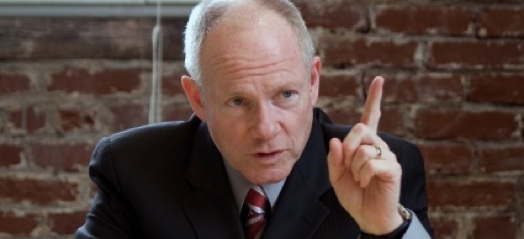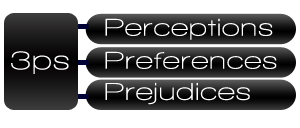Planning to Play the Race Card?
Without doubt, this is a loaded question. Playing the race card in the work setting is similar to dropping a hand grenade in a prayer session. It is polarizing and negative and changes the landscape and the game. Quite frankly, it creates an explosion when you do it, and even if there are no casualties, you have created strident enemies all around you.
What is this ‘thing’ we call the race card and is there ever a time to play it?
Simple Definitions
To capture the definition of race card, I visited Wikipedia. It is not always the most credible source, but it puts a stake in the ground of controversial subjects including this one:
According to Wikipedia:
In the less critical sense, the phrase is commonly used in two contexts. In the first, and more common context, it alleges that someone has deliberately and falsely accused another person of being a racist in order to gain some sort of advantage.[1] (Continued)
In the second context, it refers to someone exploiting prejudice against another race for political or some other advantage. The use of the southern strategy by a political candidate is said by some to be a version of playing the race card, such as when former Senator Jesse Helms, during his 1990 North Carolina Senate campaign ran an ad showing a black man taking a white man’s job, intended as a criticism of the idea of racial quotas. The ad was interpreted by many people as trying to play to racist fears among white voters.
Excerpted from “Race Card”, Wikipedia 9/3/2011
The most important portion of the definition of “race card” from Wikipedia above is accentuated here:
“…it alleges that someone has deliberately and falsely accused another person of being a racist in order to gain some sort of advantage.”
Quite simply put, the race card manifest itself in our business environment in a couple of profound ways:
- An individual (let’s say Black employee) suggest issues involving race as the reason for some less than desirable action on the part of a manager or superior, which results in an impairment or disadvantage. The employee specifically cites race or racism as being evident.
- A manager or another employee attempts to discredit an employee (let’s say Black employee) by falsely suggesting that the employee has cited race as the reason for a particular treatment or actions.
There are other ways that it can play out, yet these represent some of the more prominent issues that have to do with this interchange. No one wants to be discredited. Not the manager, nor the employee. The mere mention that one feels discriminated against is toxic in an organization, so both of these are problematic.
Falsely accusing someone of being racist is a simple concept. It is wrong and playing that card is detrimental to all Black professionals who are working to be the best that they can be. Misrepresenting what an employee thinks or feels about any aspect of discrimination to pre-empt an action or discussion is just as wrong.
So playing the race card can mean a lot of things, but it happens both ways. Both ways are detrimental to good relations, and we should be real careful about alleging that race and racism is a motivation unless it is quite evident.
What if it is true? If it is true, you might phrase that as ’playing the race card as well, yet be very careful as being able to prove the truth is not an easy task. Even though ‘the truth will set you free’, it may not get you justice in a case like this. Nonetheless if race has played a role in an injustice, then what must be done must be done, just have your proof ready!
What Can You Prove?
It is always smart to avoid any claim that you cannot prove. Remember, “It is not what you know, it is what you can prove!” With that in mind, your claims regarding management should be restrained when it comes to racism, and always yield to that which you can substantiate.
If you have a provable claim of disparate treatment, you should have discussions on the basis of that treatment, not racism. In other words, if you are being treated unfairly, have those discussions with the manager or HR; yet be reserved with any race card. The best HR professionals will understand you and your claim if you are clear, and if the claim is actionable, they will act on it. Good HR professionals consider the possibility racism, whether they tell you or not.
I always say “what you can prove” because racism (in this case) is an attitude which is evidenced by how a manager treats his/her employees. Proving that there is a racist attitude means nothing if it is not accompanied by activities that show discrimination. What are you trying to prove? Proving that you are discriminated against is difficult, yet doable, but it is not easy at all
Win the Smart Way
Don’t make assertions based on the race card. Challenge management to be fair and unbiased, and you can do that without charges that are extremely difficult to prove. Stand up for yourself and keep good objective records that will substantiate any objective complaints that you might have.
If you suspect that there is a problem, bounce the situation off of a mentor (if you trust him/her) or a confidant in another field or industry for tips on how they would handle it. Most bona fide professionals can ‘smell’ racism when it is present. Always base your complaints on fairness and equity unless it is something simple to prove. Fairness and equity are important and lend themselves to reasonable proof. Unfortunately racism is insidious and it is never lends itself to easy proof.
An example of fairness and equity is illustrated in this example:
Your manager is giving all of the new prospects to someone else, and you need new prospects, you should consider approaching that on the basis of fairness and equity even though you suspect racism.
Benefit – It puts everyone on notice that you recognize that you are not being treated fairly.
Weakness – You don’t change what has happened in the past, only go forward.
In this situation, you speak to the manager openly and frankly about what you believe is the disparity. The manager should be the first stop, and he or she will recognize that you are being a professional by bringing it to him/her first. If it persists, your next stop is HR to discuss the actions. You will get some advice from there about how to proceed, yet realize that you need your “ducks in a row” as you consider going above your manager.
If it is repairable, it normally can be done at that level. Always be the professional in your actions. It will pay dividends.
Your comments are appreciated. You can reach me at Michael.Parker@Blacksalesjournal.com.
 November 3, 2016
|
Posted by Admin9!
November 3, 2016
|
Posted by Admin9!

 Categories:
Categories:  Tags:
Tags: 


Your Comments